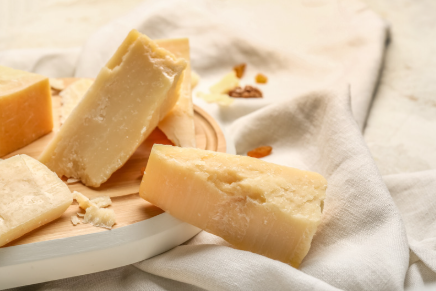Romano Cheese: A Timeless Italian Classic
Romano is a beloved Italian cheese with roots tracing back to the 1st century BC. Over the centuries, it has earned its place as a staple in traditional Italian cuisine.
Types of Romano Cheese
There are three main varieties of Romano, each named for the type of milk used:
-
Pecorino Romano – Made from sheep’s milk. This is the most traditional form and must originate from the Lazio region of Italy to carry the name Pecorino Romano officially.
-
Vaccino Romano – Made from cow’s milk. It offers a milder, creamier flavour compared to the sharper versions.
-
Caprino Romano – Made from goat’s milk. Like Pecorino, it tends to have a more pronounced, tangy flavour.
Characteristics
Romano cheese should be aged for a minimum of five months.
-
Sheep’s or goat’s milk varieties develop a sharp, bold flavour, ideal for grating over pasta.
-
Cow’s milk Romano has a milder taste and creamier finish.
The cheese itself should be dense, crumbly, and perfect for grating or shaving.
Shopping List
Ingredients:
-
Un-homogenised cow, sheep, or goat’s milk
-
Cheese starter culture (C culture)
-
Rennet
-
Calcium chloride
-
Cheese salt
-
Lipase (for enhanced flavour)
Specialist Equipment:
-
Cheese baskets
-
Cheese wax
-
Cheese cloth
-
Syringes
-
Thermometer
Make your very own with our Romano & Parmesan Kit
Download Romano Recipe here

